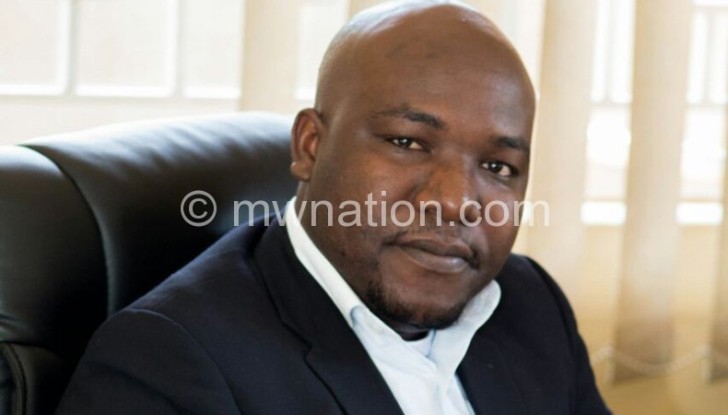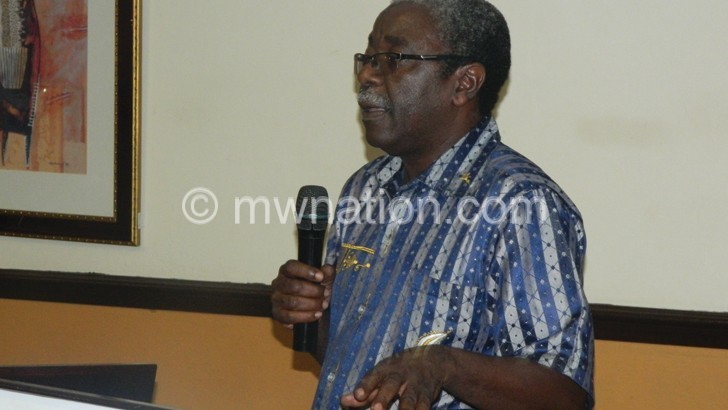NGOs fail to comply with law
Despite a legal requirement that NGOs should submit annual reports to government for purposes of accountability, the organisations continue to defy the law with only 19 percent so far complying, according to the NGO Board.
But the NGOs cited lack of confidence in the NGO Board, which is seen to antagonise government critics, as the main reason for their non-compliance.

With about a month to go before the year concludes, only 125 out of 640 non-governmental organisations (NGOs) registered with government have so far submitted reports to the NGO Board for the year 2017, representing 19.5 percent compliance rate.
The NGO Board has since warned that it will take drastic measures, including de-registering the non-compliant NGOs. Government has been letting the NGOs scot-free in the past despite threatening to act on them on numerous occasions.
The NGO Act of 2001 makes it mandatory for every NGO to declare their source of funding.
It also calls on NGOs to submit annual reports outlining their activities and a certified audit reports.
In 2016, a government database which Nation on Sunday has seen indicates that the NGO Board had 520 registered NGOs out of which only 130 submitted reports in line with the law, representing 25 percent.

From the database, the 130 that complied had a combined income of about K250 billion for the year 2016 alone, an indication that NGOs pull in a lot of money.
Kamwana Muyaya, director of programmes for the NGO Board, a State agency legally tasked with the responsibility of regulating NGOs’ operations in the country, said the money most organisations spend does not tally with projects they claim to implement.
“This [K250 billion] is a huge amount of money channelled to NGOs and this is more reason we are interested to know their source of funding and how they spend the money. But our assessment through the NGO mapping show that the money pumped in does not tally with the development on the ground. It is for this reason that we are asking NGOs to be more accountable,” he said.

Muyaya said it is only fair that NGOs account for the money because it is solicited in the name of the Malawians.
When Nation on Sunday contacted some NGOs for a comment, they cited lack of confidence in the NGO Board as the main reason for their non-compliance, a view which is shared by Council for non-governmental organisations (Congoma).
Congoma chairperson Macbain Mkandawire said they fear the NGO Board want to use the requirement to victimise the NGOs.
“That’s the problem of having a law which people did not buy in. NGOs are not resisting accountability, but fear that the same information provided to government (NGO Board) could be used for wrong reasons. I was once pushed by a Cabinet minister to help have CHRR, Cedep and Mhen de-registered because they were critical of government. This is a more reason NGOs are sceptical of the government intention to provide reports,” said Mkandawire.
CHRR executive director Timothy Mtambo, whose body has since complied with the law, argued that while NGOs are by law required to account for their work, there was need for government to gain the trust of the NGO sector most of whom are sceptical of the NGO Board.
“Sometimes you wonder whose interest the board serves. We need it to be independent and transparent in its operations otherwise NGOs are more than willing to submit their reports. Our work is to complement government’s efforts and not to fight government. There are times government treat NGOs as if they were enemies. Accountability is quiet important, but we must create an enabling environment where NGOs operate without fear,” said Mtambo.
But the NGO Board insists that NGOs have no choice, but to comply because it is the dictate of the law. The board said it was ironic that civil society organisations (CSOs) are in the forefront pushing for accountability on the part of government yet refuse to do the same.
The draft NGO policy also backs the law, adding that the NGO sector in the country has remained ineffective and unregulated.
“The government identified a number of gaps which include: limited oversight capacity of NGO operations, weak legal framework, unavailability of a policy and inadequate transparency and accountability within the NGO sector,” reads the draft policy which bears the signature of Minister of Gender, Children, Disability and Social Welfare, Jean Kalirani.
But Mkandawire does not agree with the view that NGOs are ineffective, arguing that a lot has happened in the country courtesy of NGOs. He said there is a wrong perception that the NGO sector abuses resources, arguing that their continued funding from donors is because they are doing a good job.
“How many hospitals have been built because of NGOs, how many schools? Who is responsible for community empowerment, civic education and all that you can think of? NGOs are accountable and if they were not most of them would not be receiving funding from donors because no donor would give out support without following accountability frameworks. What we disagree with is government interference,” he added.
Another NGO which refused to be named speculated that government wants to benefit from NGO money because most donors have opted to provide funding straight to NGOs because of lack of trust in the government system, which he termed a ‘licking bucket’, after Cashgate.
Despite the law being in place since 2001, enforcement has been a challenge. Submission of annual reports has only started the past three years. The NGO Board conceded that lack of a policy made it difficult for them to carry out their mandate, hence, formulation of the NGO policy.
Currently, NGOs register with both the NGO Board and Congoma. While the NGO Board has 640 NGOs in its registry as at now, Congoma has over 1 100, meaning NGOs are more comfortable to associate with Congoma than NGO Board. Under the new NGO policy, government is making it a point to have every NGO register with government.
“If the NGO is operating in Malawi it must register with the NGO Board. That is what the law says and the policy will emphasise that point. Those that are not registered with us are illegal and the law should take its course. We will intensify awareness so NGOs are aware of this fact,” said Muyaya.
The NGO Act also empowers government to discipline or de-register NGOs which do not comply with the law.
Kalirani said in an interview this week government does not want to be seen to be victimising NGOs as it believes in dialogue first. She warned that if dialogue fails, government will be left with no choice but to act according to the law.
“We do not want to be harsh. Maybe lack of awareness on the law could be another reason for low compliance, and this is why we have intensified civic education. But we have a strategy and very soon you will see us acting. I will not tell you what we intend to do, but trust me we will do something about it,” said Kalirani.
Legal expert from the University of Malawi’s Chancellor College Professor Edge Kanyongolo underscored the need for the NGOs to obey the law at all times, but was quick to point out that it would be unfortunate to downplay the fear of NGOs.
“Experience shows us that sometimes government has abused its powers, so this could be the reason some NGOs are sceptical of the government action. But I think instead of disobedience they can take action to challenge the law and have it reviewed,” he suggested.
Kanyongolo added that lack of a policy has made it difficult for government to effectively enforce the law.
The United States (US) and Norwegian governments, some of the leading funders of most NGOs in the country, said in separate interviews that there is need to regulate NGOs without stifling them.
Said US Ambassador Virginia Palmer: “In Malawi, I insist that the NGOs that we fund comply with the Malawian law and there has been back and forth between CSOs, development partners and government about what a good CSO role is which is accountability, but it [the law] doesn’t stifle the NGO sector because the NGOs are also very important in providing accountability. But you need NGOs which provide services to account for the service they are providing. I think NGOs which provide oversight are harder to monitor.”
Norwegian Ambassador Kikkan Haugen cautioned against shrinking the space for CSOs in the name of regulation.
“I think transparency and accountability should apply to all corners of the society. It should apply to government, political parties and civil society. So from the Norwegian side, we encourage organisations to be open about what they are doing. I am aware of the issue of the NGO Board and NGOs and this is an issue government should resolve. I would say coordination is more legitimate and control is more questionable,” said the Norwegian envoy.
Government has been pushing for a new NGO Act, which makes it mandatory for NGOs to make full disclosures of their financials sources and use, something that received the backing of the Parliamentary Committee on Social and Community Affairs despite most NGOs condemning it.





